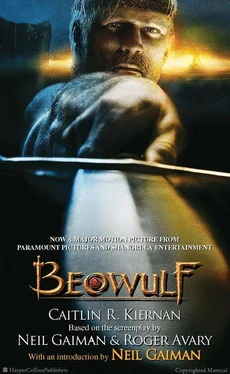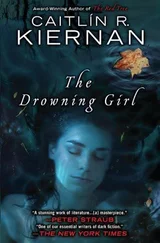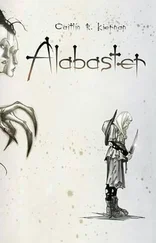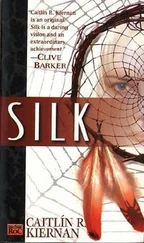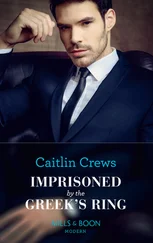“I’m here, my king!” he says, and Hrothgar, catching sight of him, grins even wider and leans down, placing the golden torque about Unferth’s thin neck.
“You are too kind, my liege. Your generosity—”
“No, no, no. It’s nothing less than you deserve, nothing less, good and faithful Unferth,” and then Hrothgar gazes out upon his subjects once again. And once again an enthusiastic cheer rises from the crowd. The king’s herald, Wulfgar, steps forward from the shadows of the throne to lead the drunken thanes and their women in a familiar chant, and soon enough most of the hall has joined him. Warriors bang their fists and cups against tabletops or leap onto the tables and stomp their feet as Heorot rings out with song:
Hrothgar, Hrothgar!
Hrothgar, Hrothgar!
He faced the demon dragon
When other men would freeze.
And then my lords,
He took his sword
And brought it to its knees !
Now Hrothgar’s musicians have all joined in, taking up the song with their harps and flutes and drums. Even Unferth sings, but the king’s gift lies cold and heavy about his throat, and there is considerably less enthusiasm and sincerity in his voice.
Hrothgar, Hrothgar!
The greatest of our kings.
Hrothgar, Hrothgar!
He broke the dragon’s wings!
But the torrents of joyous noise spilling forth from Heorot—the laughter and the fervent songs, the jangle of gold and silver coins—these are not a welcome sound to all things that dwell in this land by the sea. There are creatures in the night that are neither man nor beast, ancient beings descended from giantkind, the trolls and worse things still, who keep themselves always to the watches, to dank fens and forbidding marshlands. Past the mighty walls and pikes of Hrothgar’s fortifications, beyond gate and bridge and chasm, where farmland and pasture turn suddenly to wilderness, there stands a forest older than the memory of man, a wood that has stood since before the coming of the Danes. And in the vales that lie on the far side of these gnarled trees, are frozen bogs and bottomless lakes leading back down to the sea, and there are rocky hillocks riddled with caves, tunnels bored deep into the stone even as maggots bore into the flesh of the dead.
And in one of these caverns something huge and, to the eyes of man, ghastly crouches in the muck and gravel and a bright pool of moonlight leaking in through the cave’s entrance. It moans pitifully and clutches at its diseased and malformed skull, covering misshapen ears in an effort to shut out the torturous sounds of revelry drifting down like a thunderous, hammering snow from Heorot. For even though the mead hall and the tower on the sea cliff are only a distant glow, there is a peculiar magic to the walls and spaces of this cave, a singular quality that magnifies those far-off noises and makes of them a deafening clamor. And so the troll thing’s ears ring and ache, battered mercilessly by the song of Hrothgar’s men even as the shore is battered into sand by the waves.
He offered us protection
When monsters roamed the land!
And one by one
He took them on—
They perished at his hand!
The creature wails—a keening cry that is at once sorrow and anger, fear and pain—as the ache inside its head becomes almost unbearable. It claws madly at its own face, then snatches in vain at the darkness and moonlight, as if its claws might somehow pluck the noise from out of the air and crush it flat, making of it something silent and broken and dead. Surely, its ears must soon burst, and this agony finally end. But its ears do not burst, and the pain does not end, and the thanes’ song swells and redoubles, becoming even louder than before.
Hrothgar, Hrothgar!
We honor with this feast,
Hrothgar, Hrothgar!
He killed the fiery beast!
“No more, Mother,” the creature groans, rolling its eyes and grinding its teeth against the song. “Mother, I can’t bear this. Only so much, and I can bear no more !”
Tonight we sing his praises,
The bravest of the thanes.
So raise you spears!
We’ll have no fears,
As long as Hrothgar reigns!
The creature clenches its great fists together and gazes up into the frigid night sky from the entrance of the cave, wordlessly begging Máni, the white moon, son of the giant Mundilfæri, to end the awful noise once and for all. “I cannot do it myself,” the creature explains to the sky. “I am forbidden . My mother…she has told me that they are too dangerous .” And then it imagines a hail of stone and silver flame cast down by the moon giant, falling from the sky to obliterate the hateful, taunting voices of the men forever. But the singing continues, and the unresponsive moon seems only to mock the creature’s torment.
“No more,” it says again, knowing now what must be done, what he must do for himself , since none other will ever end this racket—not the giants, not his mother. If there is to be peace again, then he must make it for himself. And gathering all his anger and suffering like a shield, battening it close about him, the monster steps quickly from the safety of shadows, slipping from the cave and out into the shimmering, unhelpful moonlight.
From his place behind the king’s throne, Unferth watches as the mead hall sinks ever deeper into drunken pandemonium. His own cup is empty and has been empty now for some time, and he glances about in vain for the slave who should have long since come to refill it. There is no sign of the boy anywhere, only the faces of the singing, laughing, oblivious thanes. There does not seem to be a single thought remaining anywhere among them, but for the drink and their women, the feasting and the baying of old Hrothgar’s praises.
Hrothgar, Hrothgar!
As every demon fell—
Hrothgar, Hrothgar!
He dragged them back to Hel!
Wulfgar sits nearby on the edge of the dais, a red-haired maiden camped upon his lap. He lifts his cup to her lips and dribbles mead between her breasts, then she giggles and squeals as he licks it off her chest. Unferth frowns and goes back to scanning the crowd for his slave, that lazy, crippled whelp named Cain. At last he spots the boy limping through the crowd, clutching a large goblet in both hands.
“ Boy! ” shouts Unferth. “Where’s my mead?!”
“Here, my lord, I have it right here,” the slave replies, then slips in a smear of cooling vomit on the dais steps, and mead sloshes over the rim of the cup and spatters on the floor.
“You’re spilling it!” Unferth growls, and he grabs a walking stick from Aesher, a sturdy, knotted length of birch wood, and strikes Cain hard across the forehead. The boy reels from the blow, almost falls, and spills more mead on the dais steps.
“You clumsy idiot,” sneers Unferth and hits Cain again. “How dare you waste the king’s mead!”
The boy opens his mouth to reply, to apologize, but Unferth continues to beat him viciously with the stick. Some of the thanes have turned to watch, and they chuckle at the slave’s predicament. At last, Cain gives up and drops the goblet, which is empty now, anyway, and he runs away as quickly as his crooked leg will allow, taking shelter beneath one of the long tables.
“Useless worm,” Unferth calls out after him. “I should feed you to the pigs and be done with it!”
Читать дальше
